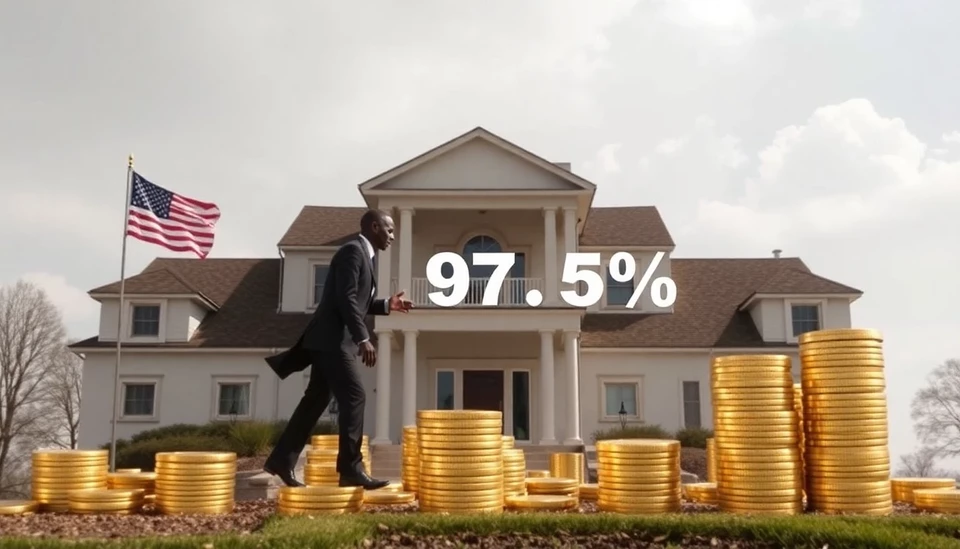
The Rising Tide of AI: Christine Lagarde Warns of Inequality in Europe
In a recent address, European Central Bank President Christine Lagarde raised significant concerns about the potential for artificial intelligence (AI) to exacerbate economic inequalities across Europe. Her remarks come as nations continue to embrace AI technologies, prompting a discussion on the economic implications these advancements may have on society.
Continue reading
Stark Economic Divide: 50% of American Households Control 97.5% of Nation's Wealth
In a remarkable revelation about wealth distribution in the United States, new data illustrates a staggering concentration of wealth within the upper echelons of the population. Recent reports indicate that nearly half of American households hold a jaw-dropping 97.5% of the nation's overall wealth, underscoring the persistent economic divide that continues to grow across the nation.
Continue reading
Wall Street Reaches New Heights: Bonus Pool Hits Record $47.5 Billion for 2024
In a stunning development for the finance sector, Wall Street's bonus pool has soared to an unprecedented $47.5 billion for the year 2024. This remarkable figure, which represents an astronomical increase, has set the stage for an intense debate about wealth distribution among financial institutions and their employees.
Continue reading
UK's 'Levelling Up' Initiative Faces Major Setbacks, Risking Increased Inequality
In a revealing analysis of the current state of the UK's ambitious "levelling up" plan, new reports have surfaced indicating that the initiative is struggling to deliver on its promises, ultimately leading to growing disparities across the nation. Once viewed as a cornerstone strategy by the government to tackle regional inequalities post-Brexit, the scheme is now under scrutiny as various sectors express disappointment and concern over its effectiveness.
Continue reading
The Stark Economic Divide: Japan's Banking Surge vs. Consumer Caution
In a surprising twist for the Japanese economy, a year after the pivotal change in its interest rate policy, banks have experienced a significant upswing in profits, while shoppers have become increasingly cautious with their spending. This contrasting economic landscape presents a fascinating study of two halves of the same coin, showcasing how shifts in fiscal policy can lead to divergent outcomes for financial institutions and consumers alike.
Continue reading
UK Workers Miss Out on £4,000 Boost as Wages Lag Behind US
A recent analysis has revealed that the earnings of UK workers could have been significantly higher—by approximately £4,000—if their wages had kept pace with those in the United States over recent years. This stark discrepancy highlights the ongoing challenges faced by the British workforce in terms of wage growth compared to their American counterparts.
Continue reading
Federal Reserve Official Cautions Against Dependence on Productivity Increases
In a recent address, Federal Reserve official Austan Goolsbee highlighted the potential dangers of relying too heavily on productivity gains to drive economic growth. As part of the ongoing discussions surrounding monetary policy and economic strategies, Goolsbee emphasized the importance of a more balanced approach to fostering economic health, warning that overreliance on productivity improvements could lead to unforeseen economic vulnerabilities.
Continue reading
Wealthy Americans Drive 50% of U.S. Economic Growth Through Consumer Spending
In a recent analysis, it has been revealed that affluent Americans are playing a vital role in propelling the U.S. economy, with their consumer expenditures accounting for nearly half of the total economic activity. This significant finding underscores the dominant influence of high-income households on overall consumer behavior and economic dynamics.
Continue reading
French Government Pushes Back Against Proposed Wealth Tax as Lawmakers Make Their Case
The debate over a proposed wealth tax in France has taken center stage as lawmakers from various parties advocate for its implementation. This initiative is part of a broader effort to address growing economic disparities and fund public services. However, it has faced significant opposition from the government, which argues that such a tax could deter investment and hinder economic growth.
Continue reading
Japan's Wealthiest Individuals See Assets Surge to Record Highs
In a remarkable turn of events, the financial landscape of Japan has been significantly impacted as the combined assets of the country's three richest individuals soared to an unprecedented total of $3 trillion. This surge not only underscores the immense wealth concentration among the elite but also signals a booming economy and investment climate in Japan, as these individuals capitalize on the nation's economic resurgence.
Continue reading